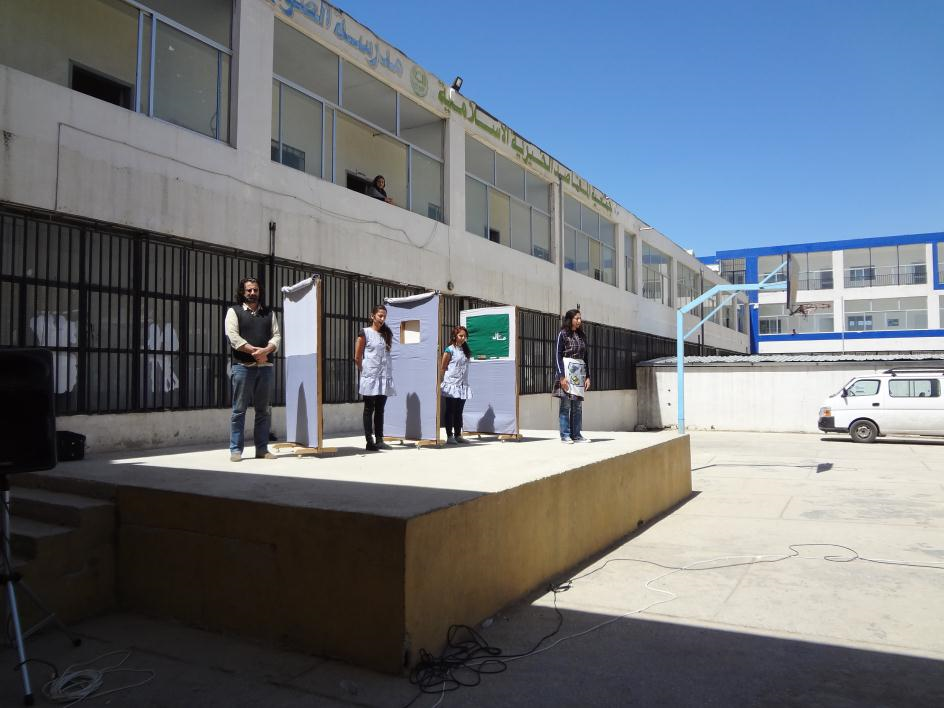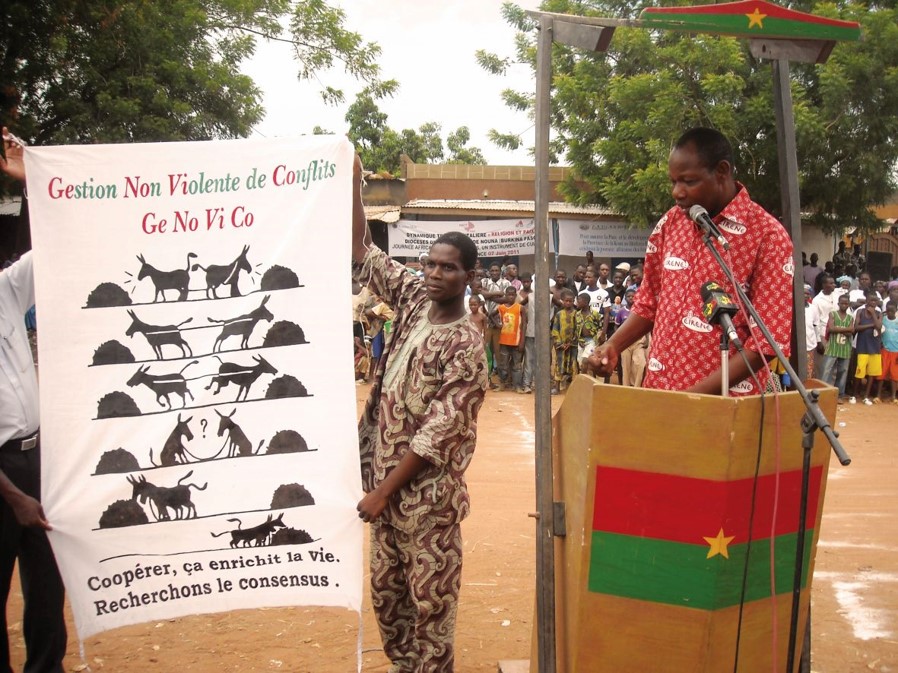In the ‘Someone is listening to me!’ project, pupils and teachers in Lebanon work together to create a play that encourages people to think about prejudices against others. No solutions are given, but the audience is encouraged to reflect for themselves.
Copyright© forumZFD/Benedikt Brammer
Peace and security The Civil Peace Service – experts in the service of peace
Worldwide, CPS experts are helping to lay the groundwork for lasting peace. They mediate in conflicts, raise public awareness of the concerns of disadvantaged groups, help ease former combatants back into civilian life, work with traumatised victims of violence, and assist with the reintegration of refugees. They always work together with local partner organisations and initiatives.
Facts and figures
The Civil Peace Service is considered to be a successful model of cooperation between governmental and non-governmental agencies engaged in development and peace work. Since the programme was launched in 1999, some 1,800 peace experts have served in cooperation projects lasting several years in more than 60 countries. At present, about 380 experts are working in 45 countries.
The BMZ provides about 60 million euros a year in support of the work of the Civil Peace Service.
The nine organisations that make up the CPS have come together to form the Civil Peace Service Group. They focus on differing tasks and have a vast range of experience, skills and methods that they can draw on in their work. This diversity and the organisations' direct cooperation with local partners enable the CPS to provide targeted support to local civil society peace initiatives and strengthen civil society in general.
Tasks
The purpose of the CPS is to facilitate lasting social change. Its project partners tailor their activities to local conditions and needs.
That means they deal with a wide range of issues, and the skills needed differ depending on the assignment.
The CPS works with local partner organisations that
- establish cooperation and dialogue across conflict lines, which may include, for example, efforts to strengthen traditional mediation bodies,
- create contact points and safe spaces where the conflicting parties can meet,
- strengthen information and communication structures that seek to identify the causes and consequences of violent conflict (including support for peace journalism, networking between peace organisations, and conflict monitoring),
- assist groups that are particularly affected by violence and help to reintegrate them in society, for example through psychosocial support and trauma counselling,
- provide advice and training on the methodology and concepts of civilian conflict management,
- engage in peace education and reduce prejudice and stereotypes, and
- strengthen legal certainty on the ground and work for human rights.
How to apply to work for the CPS
The Civil Peace Service (CPS) is a voluntary service provided by persons with both life experience and working experience. Their work is governed by the German Development Workers Act (External link). As a rule, anyone wishing to apply must have completed an education or vocational training programme, have several years of experience working in a field of relevance to the CPS, have a good command of a language commonly used internationally, and have been involved in civil society activities. Further skill requirements vary with assignments.
For openings, visit CPS job market (External link) (mostly in German)
The organisations that constitute the Civil Peace Service
On behalf of the BMZ, the work of the CPS is carried out by Germany's officially recognised development services, which have jointly formed the Civil Peace Service Group.
- Action Committee Service for Peace (External link) (AGDF) (in German)
- AGIAMONDO (External link)
- Brot für die Welt (Bread for the World) (External link)
- Deutsche Gesellschaft für Internationale Zusammenarbeit (External link) (GIZ)
- EIRENE – International Christian Service for Peace (External link)
- KURVE Wustrow – Centre for Training and Networking in Nonviolent Action (External link)
- peace brigades international (External link) (pbi) (German section, only available in German)
- Pro Peace (External link)
- Weltfriedensdienst (External link) (WFD)
Engagement Global (External link) – Service for Development Initiatives is responsible for the organisational running of the programme (information on the CPS only available in German). Decisions on the Civil Peace Service's overall programme and on all CPS projects are taken by the BMZ in agreement with the Federal Foreign Office.
For more information on the broad range of CPS project activities, visit https://www.ziviler-friedensdienst.org/en (External link).
As at: 18/06/2025

